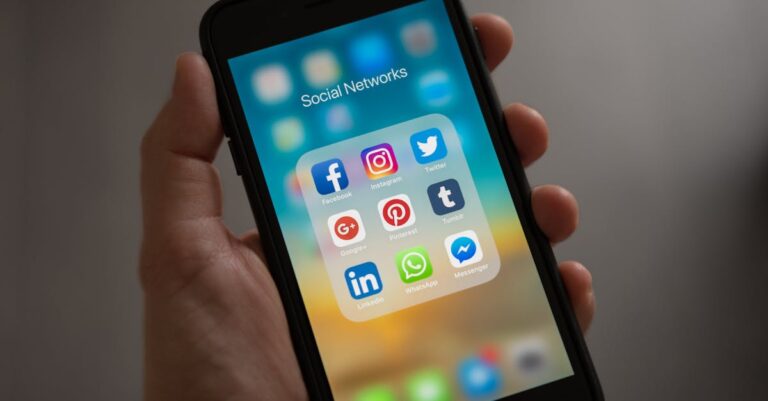In a world where smartphones are practically an extension of our hands, mobile tech has become the heartbeat of modern life. From the moment the alarm blares to the last scroll through social media before bed, these devices have revolutionized how people connect, work, and even binge-watch their favorite shows. Who knew that carrying a mini-computer could come with so many perks—and a few quirks?
Table of Contents
ToggleOverview of Mobile Tech
Mobile technology encompasses various devices and services designed for communication and information access. Smartphones represent the most prominent mobile gadgets, serving as essential tools for daily tasks, connectivity, and entertainment. These devices integrate advanced computing capabilities, allowing users to perform multiple functions, such as browsing the internet, managing emails, and using applications.
Tablets also contribute significantly to the mobile tech landscape. With larger screens than smartphones, they benefit users who prefer enhanced viewing experiences for reading, gaming, or working on documents. Their portability makes them ideal for users on the go who need versatility without sacrificing performance.
Wearable devices, like smartwatches and fitness trackers, have surged in popularity as well. These gadgets monitor health metrics and provide notifications from smartphones, making it easier for users to stay connected without checking their phones constantly. Integrating seamlessly with mobile applications, wearables enhance user experiences and promote healthier lifestyles.
Mobile technology influences various sectors, including healthcare, education, and entertainment. In healthcare, telemedicine leverages mobile devices to connect patients with healthcare providers, improving access to medical services. Similarly, educational apps and platforms utilize mobile tech to create engaging learning environments for students of all ages.
The rapid evolution of mobile tech raises questions about privacy and security. With increased connectivity comes a heightened risk of cyber threats, requiring users to adopt robust security measures. Encrypted connections and biometric authentication methods help protect personal information from unauthorized access.
Mobile tech continues to shape how individuals communicate, learn, and engage with the world. Staying aware of trends and developments in this field is essential for harnessing its full potential.
Key Trends in Mobile Tech

Mobile technology is experiencing rapid advancements, shaping user experiences and connectivity. These trends highlight the future direction of the industry.
5G Technology Advancements
5G technology introduces faster data speeds and lower latency, significantly enhancing mobile user experiences. With speeds approaching 10 Gbps, users can stream high-definition content seamlessly. Additionally, 5G supports more devices per square kilometer, improving connectivity in densely populated areas. This network evolution enhances various mobile applications, including augmented reality and IoT devices. The deployment of 5G networks is ongoing, with global rollouts expected to continue expanding through 2024.
The Rise of Foldable Phones
Foldable phones are gaining traction, appealing to consumers seeking versatile devices. These smartphones combine the functionality of a tablet with the portability of a phone. Manufacturers like Samsung and Huawei lead the market with innovative designs, showcasing flexible displays that enhance multitasking capabilities. Foldable screens allow users to expand their viewing area when needed. As technology advances, this segment is expected to grow, offering more affordable options and improved durability for users.
Impact of Mobile Tech on Daily Life
Mobile technology profoundly affects daily life, particularly through enhanced communication and productivity. Its influence reshapes various experiences and interactions, making it indispensable.
Enhanced Communication
Mobile tech revolutionizes how people communicate. Instant messaging apps provide real-time interaction, connecting individuals regardless of distance. Social media platforms enable shared experiences, fostering relationships in unprecedented ways. Voice and video calls create personal connections, delivering immediacy and intimacy. Notifications allow users to remain informed about important updates quickly. Consequently, they engage with family, friends, and colleagues more effectively.
Changes in Work and Productivity
Work dynamics shift significantly due to mobile technology. Remote access to files and applications supports flexible work arrangements. Collaboration tools facilitate teamwork, breaking geographical barriers for project management. Task management apps streamline responsibilities, enhancing individual organization and accountability. Notifications help professionals stay on top of deadlines efficiently. The ability to communicate and collaborate from anywhere maximizes productivity, empowering workers to adapt to changing environments seamlessly.
The Future of Mobile Tech
Mobile technology is evolving rapidly, with numerous innovations and challenges on the horizon. Understanding these developments is essential for adapting to future trends in the sector.
Innovations on the Horizon
Advancements in artificial intelligence drive device performance and user experience improvements. Smart assistants will provide more personalized interactions, enhancing functionality. Increased integration of augmented reality makes immersive experiences more accessible in everyday applications. Companies are exploring enhanced battery technologies, potentially extending usage times significantly. Foldable and rollable screens from leading manufacturers will offer even greater versatility, changing how users interact with devices. Finally, wearable tech is expected to evolve, incorporating advanced health metrics to promote wellness and proactive care.
Challenges Ahead
Privacy concerns will remain a significant issue as mobile tech advances. Users face increasing threats from data breaches and cyberattacks that exploit weaknesses in device security. Additionally, ethical considerations around AI use and data collection prompt debates about user consent and transparency. The development of 5G networks presents hurdles too, including the need for widespread infrastructure and potential impacts on health perceptions. Lastly, as technology continues to evolve, the digital divide could widen, leaving marginalized populations with limited access to cutting-edge mobile solutions.
Mobile technology profoundly influences daily life and continues to evolve at a rapid pace. As smartphones tablets and wearables become increasingly integrated into everyday activities they enhance communication productivity and overall well-being. The ongoing advancements in 5G and emerging innovations like artificial intelligence and augmented reality promise to further transform user experiences.
However challenges such as privacy concerns and ethical considerations must be addressed to ensure a secure and equitable technological landscape. Staying informed about these trends will be essential for individuals and businesses alike as they navigate the dynamic world of mobile tech. Embracing these changes while remaining vigilant can lead to a more connected and efficient future.



